What’s in a name? It turns out, a lot! Indeed, the significance of a surname goes beyond just being a label; it can be a powerful key to unlocking one’s ancestral past. Surnames often trace back through generations, acting as a link to a family’s lineage and geographical origins. What’s more, they can provide invaluable insights into the migration patterns, historical events, and cultural heritage of one’s ancestors.
In this article, we will explore the 50 most common Italian last names in Italy as of September 2023. The list of names was sourced from Surnam.es, a database of surnames from around the world. The meanings and origins of these names, on the other hand, were collected from various reputable sources, including Emidio De Felice’s Dictionary of Italian Surnames, Ancestry.com, Surname Database, and Patrick Hanks’ Dictionary of American Family Names.

1. Rossi
Meaning and Origin:
Rossi is the plural of rosso (the colour red). Although the exact origin of the surname is still debated, we know that it is related to the red-haired or ruddy complexion of an individual, most likely the progenitor.
The Rossi family, a noble lineage hailing from Parma, held significant power during the 13th and 14th centuries but eventually became extinct in 1825.

2. Russo
Meaning and Origin:
Russo is most likely a southern variant of Rossi. It is a very common name throughout Southern Italy and Sicily.
3. Ferrari
Meaning and Origin:
Ferrari is the perfect example of an occupational surname. It is the plural form of Ferraro, meaning blacksmith, with ferro being the word for iron in Italian.

4. Esposito
Meaning and Origin:
The name Esposito (literally “exposed”) belongs to that group of Italian surnames that used to be assigned to foundlings, which were children rejected by their biological parents and abandoned at birth or at a young age.
5. Bianchi
Meaning and Origin:
Bianchi is the plural of bianco (“white”) in Italian, which in turn comes from the Germanic name “blank,” meaning “shining” or “bright” (“bright white”). The term bianco replaced the Latin term albus that specifically referred to the color white.

6. Colombo
Meaning and Origin:
Colombo is derived from the masculine given name Colombo, which itself originates from the Late Latin name Columba, which is both a masculine and feminine name and literally means “dove”.

7. Romano
Meaning and Origin:
The surname Romano derives from the personal name Romano (from the Latin Romanus), which was borne by several Christian martyrs and saints. Originally, it served as a byname to identify individuals from Rome or Roman citizens from Roma, referring to the city of Rome.
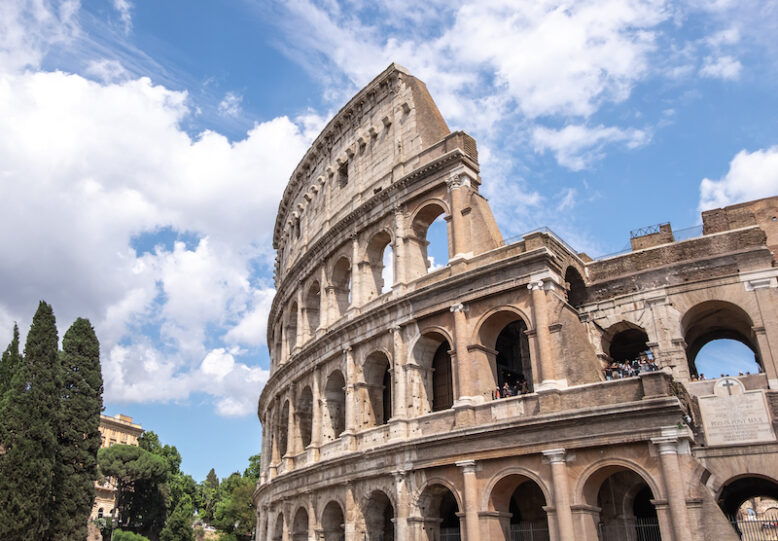
8. Ricci
Meaning and Origin:
According to the Dictionary of American Family Names, Ricci is the plural form of the adjective riccio (curly), which was a nickname for a person with curly hair.

9. Gallo
Meaning and Origin:
The surname Gallo comes from the word for “rooster” (from Latin “gallus”) and was originally given to individuals who displayed certain qualities associated with a rooster, such as a powerful voice or sexual prowess.
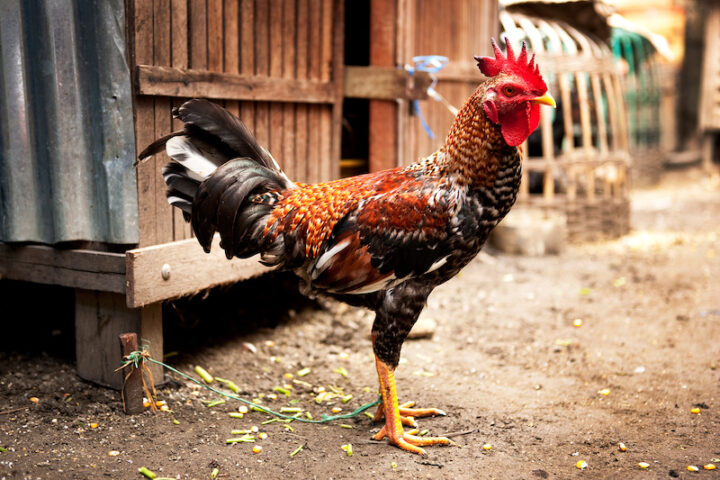
10. Bruno
Meaning and Origin:
The surname Bruno is derived from one of the Italian words for brown (bruno). It was commonly used as a nickname for individuals with brown hair, skin, or clothing. It may also have been a habitational surname, indicating someone who resided near a place named Bruno.

11. Greco
Meaning and Origin:
Greco is an ethnic name for a Greek, derived from the Italian word “Greco” (from Latin “Graecus“). In some instances, it may have been used as a nickname for a crafty person, as this quality was traditionally attributed to the Greeks.

12. Marino
Meaning and Origin:
Marino comes from the personal name Marino, which in turn comes from Latin Marinus. This Latin name is thought to be derived from the name Marius, the male equivalent of Maria. It is also a habitational name from any of various places called Marino.
13. Conti
Meaning and Origin:
Conti has its origins in the title of rank conte, which means “count” in Italian and comes from the Latin word “comes,” meaning “companion.” It likely began as a medieval personal name, referring to a “traveling companion” or someone in the service of a count.
14. Giordano
Meaning and Origin:
The surname Giordano comes from the personal name Giordano, which shares the same origin as Jordan.
15. Rizzo
Meaning and Origin:
Rizzo is a variant of the surname Riccio (meaning “curl”). It was a nickname for a person with curly hair.

16. De luca
Meaning and Origin:
The surname De luca is patronymic in nature, originating from the personal name Luca, which is the Italian form of Lucas.
17. Costa
Meaning and Origin:
Costa is a topographic name that originated from Latin, meaning “rib,” “side,” “flank,” or “coast.” It was given to someone who lived on a slope, river bank, or the coast. It can also be a name derived from various places with similar geographical features.
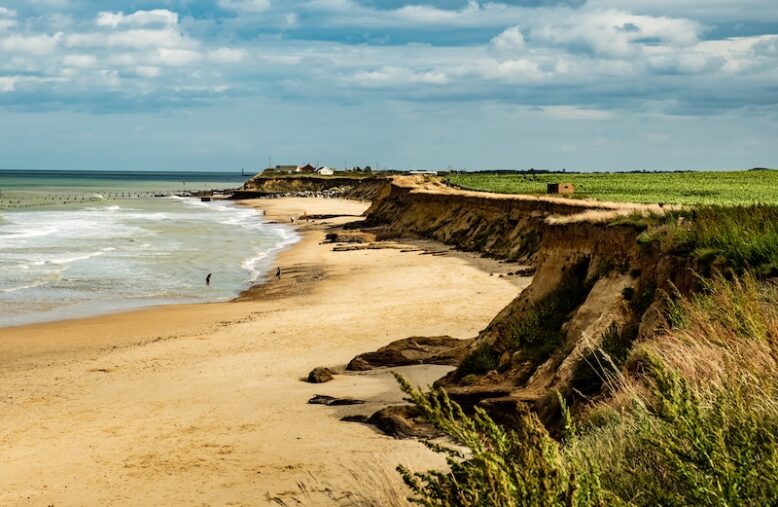
18. Mancini
Meaning and Origin:
Mancini is the plural form of Mancino, a nickname for a left-handed person.

19. Lombardi
Meaning and Origin:
The surname is the plural of Lombardo and could be an ethnic name for a person hailing from Lombardy, particularly, or more broadly, for someone from northern Italy, as opposed to the southern regions historically under Byzantine rule.
20. Barbieri
Meaning and Origin:
This surname may have an occupational origin. It likely comes from the term barbiere, which means “barber-surgeon.” This term is derived from Late Latin barbarius, which itself is a derivative of barba, meaning “beard.”

21. Fontana
Meaning and Origin:
This surname may be a topographic name for someone who lived near a spring. It could also be a habitational name from various minor places with names containing the word fontana.

22. Moretti
Meaning and Origin:
Moretti is the plural form of Moretto, the pet form or diminutive of the medieval personal name and nickname Moro.
Birra Moretti (Moretti Beer) is one of Italy’s most famous brewing companies, founded in Udine in 1859 by Luigi Moretti.
23. Mariani
Meaning and Origin:
The surname Mariani can have multiple origins. It may be a patronymic or plural form of the personal name Mariano. Additionally, it could originate from someone coming from places named Mariano, such as Mariano in Bergamo or Mariano Comense in Como. This surname follows the common Lombardic pattern of pluralised surnames derived from place names.
24. Caruso
Meaning and Origin:
The Italian surname Caruso may have originated as a nickname, meaning “close-cropped.” In the Middle Ages, some fashionable young men wore very short hair, which could have led to this nickname. Additionally, in the Girgenti area of Sicily, Caruso was used as an occupational name for sulfur pit workers who were required to maintain short hair due to their job.
25. Galli
Meaning and Origin:
The surname is the plural of Gallo (“rooster“), which we already saw above (number 13).
26. Ferrara
Meaning and Origin:
The Italian surname Ferrara, especially common in southern Italy, can have two potential origins. It might have started as a topographic name for someone living near a forge or iron workings. This name is derived from the Latin word ferraria, which is related to ferrum, meaning “iron.” Alternatively, Ferrara could be a habitational name for someone originating from Ferrara, the provincial capital located in Emilia-Romagna, Italy.
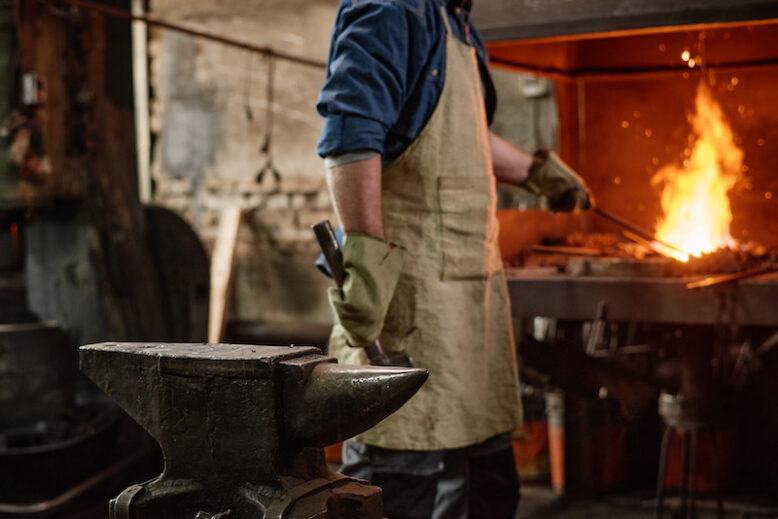
27. Santoro
Meaning and Origin:
The southern Italian surname Santoro is derived from a medieval personal name. This name was originally given to individuals born on All Saints’ Day. The name Santoro itself comes from the Late Latin “sanctorum (omnium dies festus),” which means “(feast day of all) the saints.”
28. Rinaldi
Meaning and Origin:
The surname Rinaldi is the plural form of the personal name Rinaldo. Rinaldo is a variant of Renaldo.
29. Longo
Meaning and Origin:
The surname Longo is derived from a nickname, which originated from the term longo, meaning ‘tall’. This is a dialect variant of lungo, which comes from the Latin word longus, meaning ‘long’.

30. Villa
Meaning and Origin:
The name Villa refers to someone living in a village instead of a remote farmhouse or a town rather than the countryside. It originates from the Latin word “villa,” which initially meant a country house estate and later referred to a cluster of houses forming a settlement. It could also be a name from a place called “Villa.”
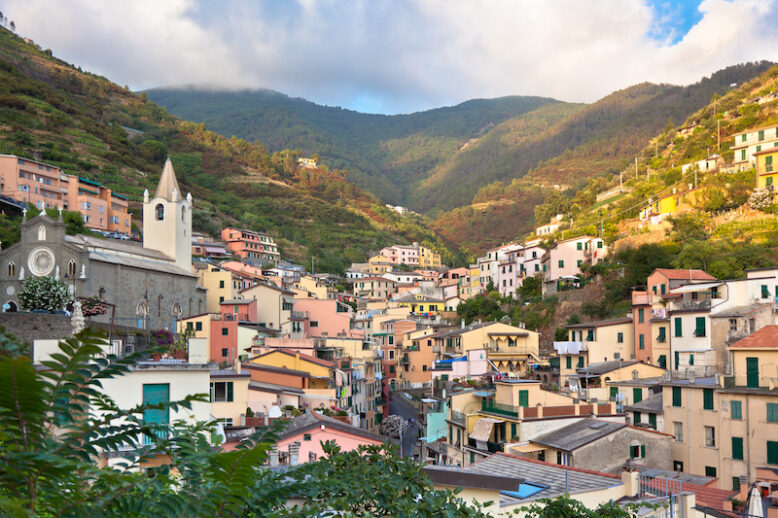
31. Sala
Meaning and Origin:
The Italian surname Sala likely stems from the Italian word sala, which translates to ‘hall‘. It may have served as a topographic name, signifying an individual’s residence near a hall or manor house. It could also have been an occupational title for someone employed in such a establishment. Additionally, Sala might have an origin linked to a specific location such as Sala Biellese in the Biella province.
32. Leone
Meaning and Origin:
The Italian surname Leone has its origins in a personal name derived from a nickname. This nickname was used to describe a person who was known for being a fierce or courageous warrior. It is directly linked to the Italian word for lion, which is leone (derived from the Latin “leo,” genitive form “leonis”).

33. Martini
Meaning and Origin:
This name is the patronymic or plural form of the personal name Martino.
34. Dalla
Meaning and Origin:
The surname Dalla has pre-Christian Roman origins. This surname indicates a residential association with a manor house or the most prominent residence in the respective town or village.
35. D’Angelo
Meaning and Origin:
The surname D’Angelo is a patronymic name derived from the personal name Angelo, which means angel in Italian. In Italy, this surname is primarily found in Naples and the southern regions of the country.
36. Bianco
Meaning and Origin:
The surname Bianco is derived from the word bianco, which means “white.” Its origin can be traced to ancient Germanic roots, similar to Old High German “blanc,” which conveys the idea of “bright shining white and beautiful.” Initially, Bianco was likely applied as a nickname for an individual with white or fair hair, a pale complexion, or someone who habitually wore white, particularly in jousting or other competitions. Over time, it also came to be used as a personal name.

37. Martinelli
Meaning and Origin:
The surname Martinelli is either a patronymic name or a plural form derived from a pet form of the personal name Martino, which is the Italian form of Martin.
38. Gatti
Meaning and Origin:
Gatti is the patronymic or plural form of gatto (cat).

39. Vitale
Meaning and Origin:
The Italian surname Vitale, also found among Jewish families from Italy, is derived from the personal name Vitale. This name is of Latin origin, stemming from Vitalis, a derivative of the word vita, meaning ‘life.’ It was carried by numerous early saints and gained particular popularity in the Emilia-Romagna region due to two saints known as San Vitale, one from Bologna and the other from Ravenna.
40. Serra
Meaning and Origin:
The Italian surname “Serra” can have two possible origins: It may have originated from the Italian word serra, which means ‘ridge or chain of hills; mountain range.’ Alternatively, it could be a habitational name derived from various places in Italy that are named with the word serra, such as Serra d’Aniello.
41. Coppola
Meaning and Origin:
The southern Italian surname Coppola refers to a specific type of beret that is characteristic of the region. It could be a nickname given to someone who habitually wore this type of beret. Alternatively, it might be an occupational name, indicating a person who was involved in making berets.

42. Gentile
Meaning and Origin:
The Italian surname Gentile is derived from the personal name Gentile. This name has its origins in Late Latin Gentilis, which comes from Latin gens (genitive form gentis), meaning ‘tribe,’ ‘family,’ or ‘stock.’ Initially, it signified ‘of the same stock’ and later evolved to refer to a ‘non-Christian’ or ‘pagan’ individual.
43. Cattaneo
Meaning and Origin:
The Italian surname “Cattaneo” has two possible origins: In the region of Liguria, Cattaneo is a variant of the surname Capitano (captain). Alternatively, Cattaneo could be a habitational name for someone originating from Catania, a city in Sicily.
44. Ferri
Meaning and Origin:
Ferri is the patronymic or plural form of Ferro (meaning “iron”).
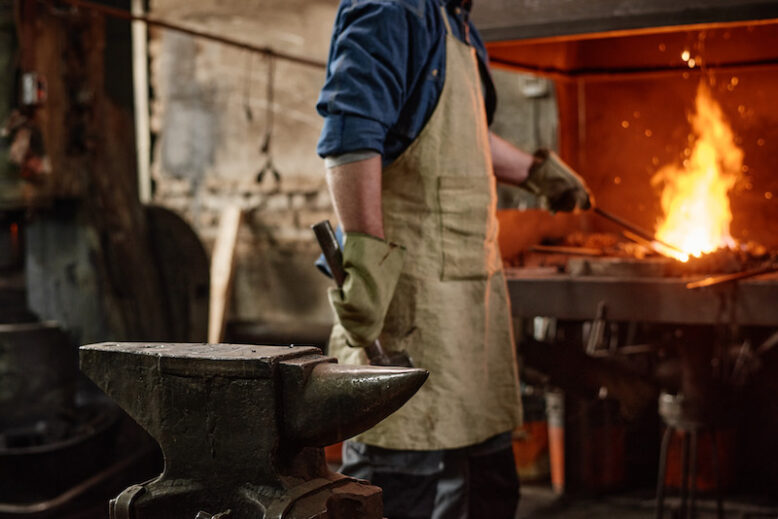
45. Messina
Meaning and Origin:
The Italian surname Messina is a habitational name referring to the city of Messina in Sicily, southern Italy. This name is particularly prevalent in Sicily, especially in the regions of Palermo and Catania.
46. Monti
Meaning and Origin:
The Italian surname Monti is a variant of the surname Monte, derived from the plural form. This indicates that Monti likely originated from a place named Monte or was associated with hilly or mountainous terrain.
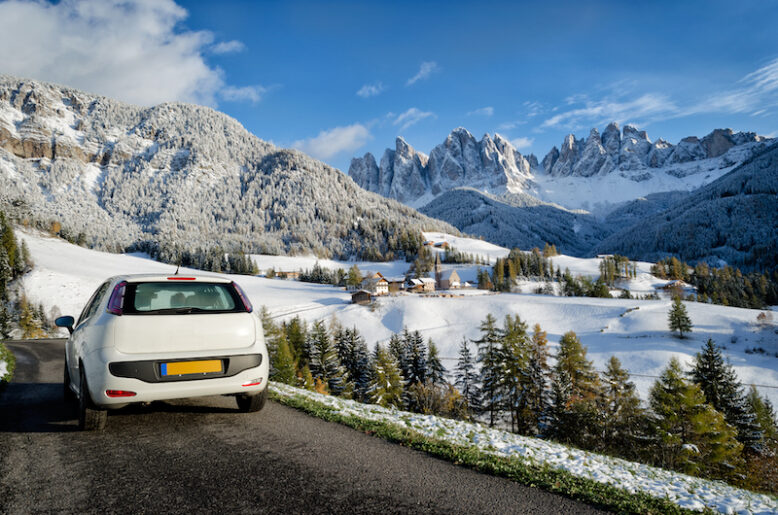
47. Marchetti
Meaning and Origin:
The Italian surname Marchetti is either a patronymic or a plural form of Marchetto, which itself is a pet form of the personal name Marco, the Italian form of Mark.
48. Marini
Meaning and Origin:
Marini is the patronymic or plural form of the personal name Marino, which comes from the personal name Marino from Latin Marinus.
49. Fabbri
Meaning and Origin:
Fabbri is the patronymic or plural form of the personal name Fabbro, an occupational name for an ironworker or smith.
50. Ferraro
Meaning and Origin:
The Italian surname Ferraro is an occupational name that originated from the Old Italian term (fabbro) ferraro, which means ‘blacksmith’ or ‘ironworker.’ This name is derived from the Latin word for ‘iron,’ which is ferrum.
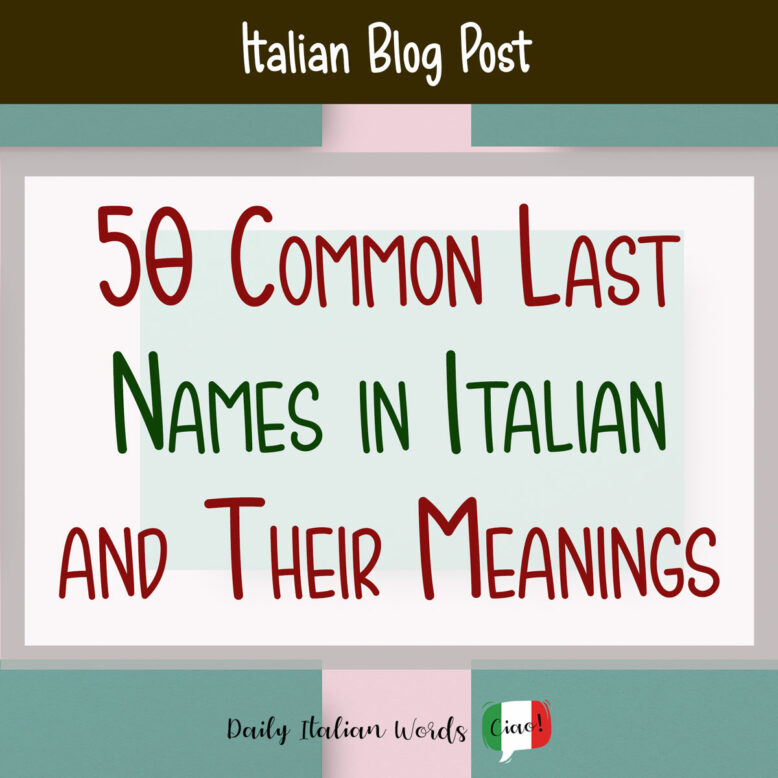
Heather Broster is a graduate with honours in linguistics from the University of Western Ontario. She is an aspiring polyglot, proficient in English and Italian, as well as Japanese, Welsh, and French to varying degrees of fluency. Originally from Toronto, Heather has resided in various countries, notably Italy for a period of six years. Her primary focus lies in the fields of language acquisition, education, and bilingual instruction.


